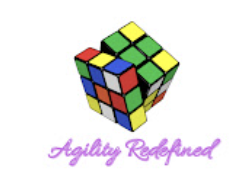Emotional Intelligence Coaching is a coaching approach that focuses on developing an individual’s emotional intelligence, which includes self-awareness, self-regulation, empathy, social skills, and motivation. The goal is to enhance an individual’s ability to recognize, understand, and manage their own emotions and the emotions of others. Here’s an overview of Emotional Intelligence Coaching:
Definition:
- Emotional Intelligence Coaching is a specialized coaching approach that helps individuals recognize and improve their emotional intelligence. It involves developing emotional awareness and competencies to navigate personal and professional relationships more effectively.
How to Facilitate Emotional Intelligence Coaching:
- Self-Assessment: Clients assess their current emotional intelligence levels through self-assessment tools or feedback from others.
- Awareness: The coach helps clients become more aware of their emotional reactions and patterns, both in themselves and in others.
- Self-Regulation: Clients learn strategies to manage their emotional responses, reduce impulsivity, and handle stress more effectively.
- Empathy: Coaching encourages clients to enhance their ability to understand and relate to the emotions and perspectives of others.
- Social Skills: The coach helps clients improve their social skills, including communication, conflict resolution, and relationship-building.
When to Use Emotional Intelligence Coaching:
- Emotional Intelligence Coaching is useful when individuals want to improve their emotional intelligence to enhance their personal relationships, leadership skills, teamwork, and overall well-being.
- It can be applied in various personal and professional contexts where emotional intelligence is a critical factor.
How It’s Useful:
- Improved Relationships: It fosters better interpersonal relationships by enhancing empathy and communication skills.
- Enhanced Leadership: Emotional intelligence is crucial for effective leadership, so coaching in this area can improve leadership capabilities.
- Stress Management: Clients develop strategies to manage stress and maintain emotional balance.
- Self-Reflection: Coaching encourages self-reflection and personal growth.
Expected Outcomes:
- Increased self-awareness and emotional regulation.
- Enhanced empathy and improved social skills.
- Better stress management and interpersonal relationships.
Alternate Approaches to Coaching:
- Cognitive-Behavioral Coaching: This approach combines cognitive-behavioral principles with coaching techniques to help individuals identify and change unhelpful thought patterns and behaviors.
- Narrative Coaching: Narrative coaching uses storytelling and narrative techniques to help individuals explore their personal narratives, values, and beliefs to drive change and personal growth.
- Solution-Focused Brief Therapy: SFBT is a brief and goal-oriented approach that helps individuals identify and work toward solutions to their challenges.
- GROW Model: The GROW model is a structured coaching approach that guides clients in setting goals, exploring their current reality, generating options, and building commitment to achieve their goals.
- Appreciative Inquiry: AI is a strengths-based approach that explores and builds on the positive aspects of individuals, teams, or organizations to drive change.
Emotional Intelligence Coaching is highly beneficial when individuals want to enhance their emotional intelligence, as it can positively impact their relationships, leadership capabilities, and overall well-being. It equips individuals with skills to navigate the complexities of human emotions effectively.
